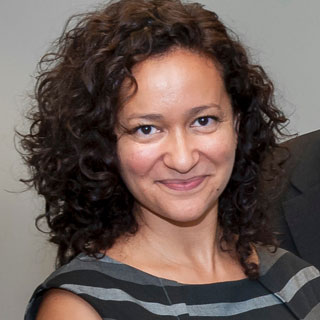A Simon Fraser University health sciences professor, at the leading edge of global research on the sexual health of people affected by the human immunodeficiency virus (HIV), has secured substantial funding to continue her work.
Epidemiologist Angela Kaida, whose research spans three countries across the globe, was recently renamed the Canada Research Chair in HIV and sexual and reproductive health.
“I’m looking to . . . expand my global research program and mov[e] into investigation, looking further into intervention,” said Kaida about embarking on her second phase as chair.
For chairs in the second tier, such as Kaida, the federal government grants the university $100,000 annually for the duration of the five-year term. Kaida’s work is built around achieving the global targets for HIV and acquired immune deficiency syndrome (AIDS) eradication.
The United Nations body responsible for addressing the HIV/AIDS virus, UNAIDS, has initiated an ambitious goal for the global community to end AIDS by 2030.
By the end of the decade, the goal is that 90% of all people with HIV will know their status and will be receiving antiretroviral therapy, while 90% of those receiving antiretroviral therapy will have a suppressed concentration of the virus.
“If we achieve these targets . . . the modelling science tells us that we will end AIDS by 2030,” explained Kaida.
Today, a person who is living with HIV and receiving proper treatment can attain an undetectable level of the HIV virus.
“So when a person has an undetectable viral load, the emergent science tells us that there is no risk of transmitting HIV to an uninfected partner, even when condoms are not used during sex,” explained Kaida. “That has incredible implications for the sex lives for the people living with HIV, but it also has incredible implications for people living with HIV who want to become pregnant.”
Kaida’s work in Uganda, one of the three global settings where she is conducting her research, explores how people make decisions around pregnancy and the types of strategies used by men and women who are infected by HIV.
“Our research in that context . . . is now expanding into trying to understand how do we increase uptake of this service and to document how do you successfully implement a safer conception program,” said Kaida. “What are the pregnancy outcomes for people accessing this care [and] how can safer conception programming contribute to larger global goals around reducing ongoing transmission of HIV.”
Her other area of research is focused on young people in South Africa and in particular, young women. Over a quarter of all new infections in South Africa are among young people, especially those between 16 and 24 years of age.
“When we look more closely at that group, we can see that young women in particular have over three times the risk of acquiring HIV compared to young men in that same age group,” she said.
According to Kaida, the younger women don’t take the same precautions, such as pre-exposure prophylaxis, at the same rate as older women. Therefore, her work in South Africa is trying to understand how to implement HIV prevention strategies for young women, by understanding their daily experiences and what power they have over their sexual well-being.
“So in the second phase of my chair, [I aim] to work with young people to develop intervention and implementation strategies to improve young women’s uptake of HIV prevention strategies,” said Kaida
Her third area of focus is based in Canada where she is a principal investigator of a study called Canadian HIV Women’s Sexual and Reproductive Health Cohort. The research methods and interpretations are all done in collaboration with the leadership of women living with HIV in Canada.
“The overarching goal of that research program is around ensuring that we are asking research questions that are of highest priority of women living with HIV in Canada, and ensuring that the research that we do is translatable — so we can translate those findings into policy and programming change to improve the health [and] well-being of women living with HIV in Canada,” said Kaida.
“And one of the really urgent area of research focus for us is related to the criminalization of HIV non-disclosure in Canada,” she said.
The research is trying to untangle what women living with HIV know about criminalization laws in Canada and their experience having their sexual lives, sexual choices, and health-care engagement under the surveillance of law.




